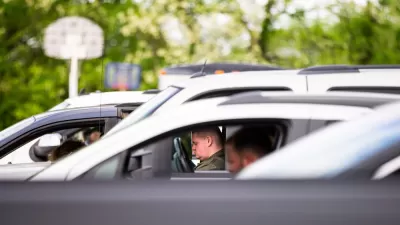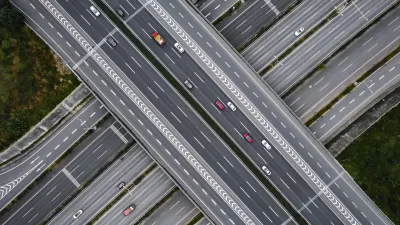New research stresses the importance of socioeconomic differences in U.S. transportation trends.

Research published by the Transportation Research Part D: Transport and Environment reveals mobility trends in the United States that indicate a growing transportation gap to coincide with the nation’s growing wealth in equality.
The study, authored by Xize Wang from the National University of Singapore and John L. Renne from Florida Atlantic University, used data from the 2017 National Household Travel Survey (NHTS) to compare urban travel trends to previous surveys.
“The most noticeable trend for the 2017 NHTS is that although private automobiles continue to be the dominant travel mode in American cities, the share of car trips has slightly and steadily decreased since its peak in 2001,” according to the abstract from the study. “In contrast, the share of transit, non-motorized, and taxicab (including ride-hailing) trips has steadily increased.”
An article by Matthew Rozsa for Salon draws an angle unavailable in the study’s abstract from the conclusions of the study: “one's ability to access a car depends on many factors beyond a person's control,” writes Rozsa. “Foremost among them? Wealth.”
Renne is quoted in the article explaining that low-income residents of the United States are increasingly “cut off from job opportunities, schools, and other services” in locations without high quality transit service and safe walking and biking facilities.
“In addition to worsening income inequality, the American transportation gap has widened due to factors unique in the history of the early 21st century — in particular, the onset of the Great Recession in 2008 and the outbreak of the COVID-19 pandemic in 2020, which exacerbated economic hardships,” writes Rozsa.
FULL STORY: As wealth inequality spirals out of control, many Americans can no longer afford to drive

Study: Maui’s Plan to Convert Vacation Rentals to Long-Term Housing Could Cause Nearly $1 Billion Economic Loss
The plan would reduce visitor accommodation by 25,% resulting in 1,900 jobs lost.

Alabama: Trump Terminates Settlements for Black Communities Harmed By Raw Sewage
Trump deemed the landmark civil rights agreement “illegal DEI and environmental justice policy.”

North Texas Transit Leaders Tout Benefits of TOD for Growing Region
At a summit focused on transit-oriented development, policymakers discussed how North Texas’ expanded light rail system can serve as a tool for economic growth.

How Community Science Connects People, Parks, and Biodiversity
Community science engages people of all backgrounds in documenting local biodiversity, strengthening connections to nature, and contributing to global efforts like the City Nature Challenge to build a more inclusive and resilient future.

Alabama: Trump Terminates Settlements for Black Communities Harmed By Raw Sewage
Trump deemed the landmark civil rights agreement “illegal DEI and environmental justice policy.”

Dear Tesla Driver: “It’s not You, It’s Him.”
Amidst a booming bumper sticker industry, one writer offers solace to those asking, “Does this car make me look fascist?”
Urban Design for Planners 1: Software Tools
This six-course series explores essential urban design concepts using open source software and equips planners with the tools they need to participate fully in the urban design process.
Planning for Universal Design
Learn the tools for implementing Universal Design in planning regulations.
City of Santa Clarita
Ascent Environmental
Institute for Housing and Urban Development Studies (IHS)
City of Grandview
Harvard GSD Executive Education
Toledo-Lucas County Plan Commissions
Salt Lake City
NYU Wagner Graduate School of Public Service




























